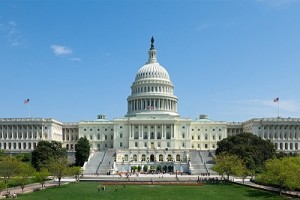6 When they had gone through the whole island as far as Paphos, they came upon a certain magician, a Jewish false prophet named Bar-Jesus. 7 He was with the proconsul, Sergius Paulus, a man of intelligence, who summoned Barnabas and Saul and sought to hear the word of God. 8 But Elymas the magician (for that is the meaning of his name) opposed them, seeking to turn the proconsul away from the faith. 9 But Saul, who was also called Paul, filled with the Holy Spirit, looked intently at him 10 and said, “You son of the devil, you enemy of all righteousness, full of all deceit and villainy,  will you not stop making crooked the straight paths of the Lord? 11 And now, behold, the hand of the Lord is upon you, and you will be blind and unable to see the sun for a time.” Immediately mist and darkness fell upon him, and he went about seeking people to lead him by the hand. 12 Then the proconsul believed, when he saw what had occurred, for he was astonished at the teaching of the Lord.
will you not stop making crooked the straight paths of the Lord? 11 And now, behold, the hand of the Lord is upon you, and you will be blind and unable to see the sun for a time.” Immediately mist and darkness fell upon him, and he went about seeking people to lead him by the hand. 12 Then the proconsul believed, when he saw what had occurred, for he was astonished at the teaching of the Lord.
Acts 13:6-12 (ESV)
One school of politics lives and dies by the following maxim: there are no politics without polling. Leaders without scruples look for ways to please the greatest number of people with the least amount of conviction. This method, known as triangulation, operates by locating extremes, pinpointing the middle position, and developing a policy based upon the projected “center.” In order to be most effective, this relativistic approach depends upon advisors to determine the popular course of action. But the tactic runs aground when confronted with its archenemy: truth.
Sergius Paulus, proconsul of Cyprus, was a shrewd politician and seemingly a student of triangulation. As the chief provincial governor, he understood well Rome’s imperial dictum: peace through strength, peace at all costs. Like his other Roman contemporaries, he was probably a religious skeptic. Eager to understand his constituency, the proconsul enlisted a Jewish sorcerer named Elymas (also called “Bar-Jesus”) most likely to help him interpret the Jewish mindset and understand public perception about spiritual matters.
When Barnabas and Saul landed in Salamis, the governor invited the apostles to present him with “the Word of God” (vv. 6-7). Fearful at what the preaching of the gospel might do to his prominence in the proconsul’s inner circle, Elymas sought to prevent God’s men from receiving a hearing. Paul condemned the sorcerer for touting magic over ministry, and Elymas was struck blind. Sergius Paulus responded in faith following this remarkable event. Notably, however, it was not the miracle alone that amazed him. Rather, he “was astonished at the teaching of the Lord” (v. 12). Evidently, the gospel preached by Paul and Barnabas impressed the governor who witnessed its power over both spiritual and temporal realms.
Seemingly courageous men sometimes wither in the presence of power. In his book, Kingdoms in Conflict,[i] Chuck Colson describes how during his service in the White House, he saw angry constituents wanting to give President Nixon a “piece of their mind” become sheepish when they were finally told, “The President will see you.” “Invariably,” Colson writes, “the lions of the waiting room became the lambs of the Oval Office.” When presented with these opportunities, Christians cannot afford such timidity.
Perceptive public officials may be more interested in theology than the modern evangelical church suspects. Like the Roman proconsul of Cyprus, some governmental leaders may begin their career as mere pragmatists. But when confronted with the objective truth of the Christian gospel, they might begin to see that the Bible rightly understands the solutions to the problems of the real world. By God’s grace, even the leaders of cities, states, and nations can be “astonished at the teaching of the Lord.”
———————————————-
Endnote
[i] Charles Colson, Kingdoms in Conflict (Grand Rapids, MI: William Morrow & Zondervan Publishing House, 1987), 307.